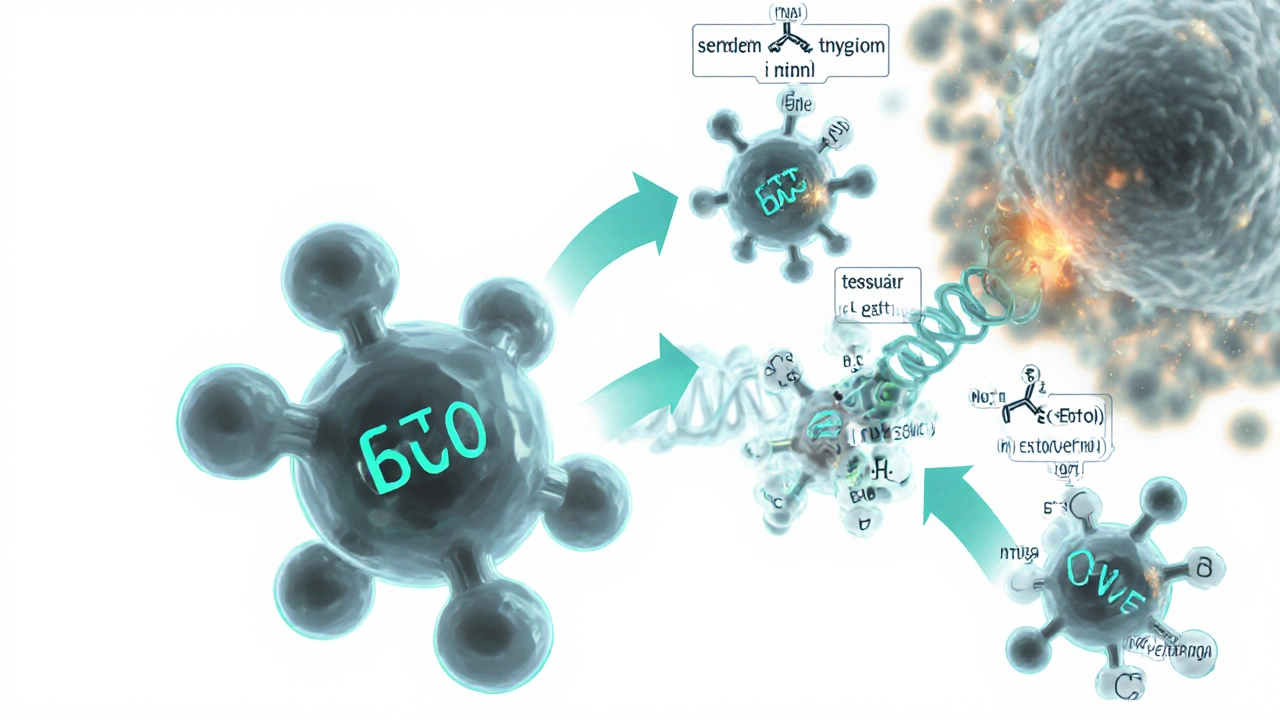Hormone Imbalance: Causes, Symptoms & Effective Management
When dealing with hormone imbalance, a condition where the body’s hormonal signals are out of sync, leading to physical and emotional issues. Also known as endocrine disruption, it can affect metabolism, mood, and energy levels. Common contributors include thyroid disorders, conditions such as hypothyroidism that slow metabolism, adrenal fatigue, chronic stress that drains cortisol reserves, and estrogen dominance, excess estrogen relative to progesterone that can cause weight gain and mood swings. These factors illustrate the semantic triple: Hormone imbalance encompasses thyroid disorders, Hormone imbalance requires proper testing, and Thyroid disorders influence hormone imbalance. Understanding these links helps you target the right tests and treatments.
Key Players and How They Interact
Besides the three triggers above, testosterone deficiency, low male hormone levels that can cause fatigue and loss of muscle often shows up in both men and women dealing with hormone imbalance. When cortisol stays high from adrenal fatigue, it can suppress testosterone production, creating a feedback loop that worsens symptoms. Likewise, estrogen dominance can convert excess estrogen into estrogen‑like compounds that further reduce testosterone, which explains another semantic triple: Estrogen dominance lowers testosterone levels. Recognizing these interconnections lets you choose lifestyle tweaks—like stress reduction, balanced nutrition, and targeted supplements—that address multiple points at once.
Practical steps start with a clear diagnosis. Blood panels that measure TSH, free T4, cortisol, estradiol, and testosterone give you a snapshot of where the endocrine system is out of balance. From there, doctors may recommend levothyroxine for hypothyroidism, adaptogenic herbs such as ashwagandha for adrenal support, or natural progesterone to offset estrogen dominance. Lifestyle habits matter too: regular sleep, moderate exercise, and a low‑glycemic diet keep insulin from spiking, which can otherwise worsen estrogen excess. Each of these actions ties back to our earlier triples, showing that Effective management of hormone imbalance requires both medical and lifestyle interventions.
Below you’ll find a curated set of articles that dive deeper into each of these topics—comparisons of pain relievers that might mask symptoms, step‑by‑step guides for carbimazole in thyroid care, and tips for traveling with acid indigestion that can aggravate stress‑related hormone swings. Whether you’re looking for drug‑specific advice or natural strategies, the collection offers practical insight to help you get your hormones back on track.
Folate Deficiency and Hormone Imbalances: How Low Folate Affects Your Hormones
Explore how folate deficiency disrupts hormone balance, who’s at risk, how to test, and practical diet and supplement steps to restore healthy estrogen, testosterone, thyroid and cortisol levels.






